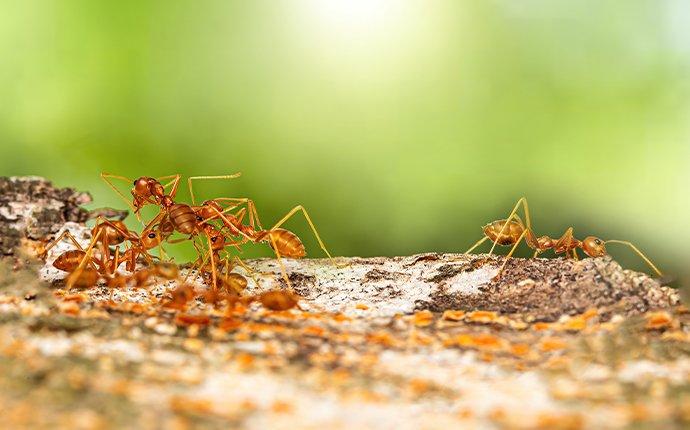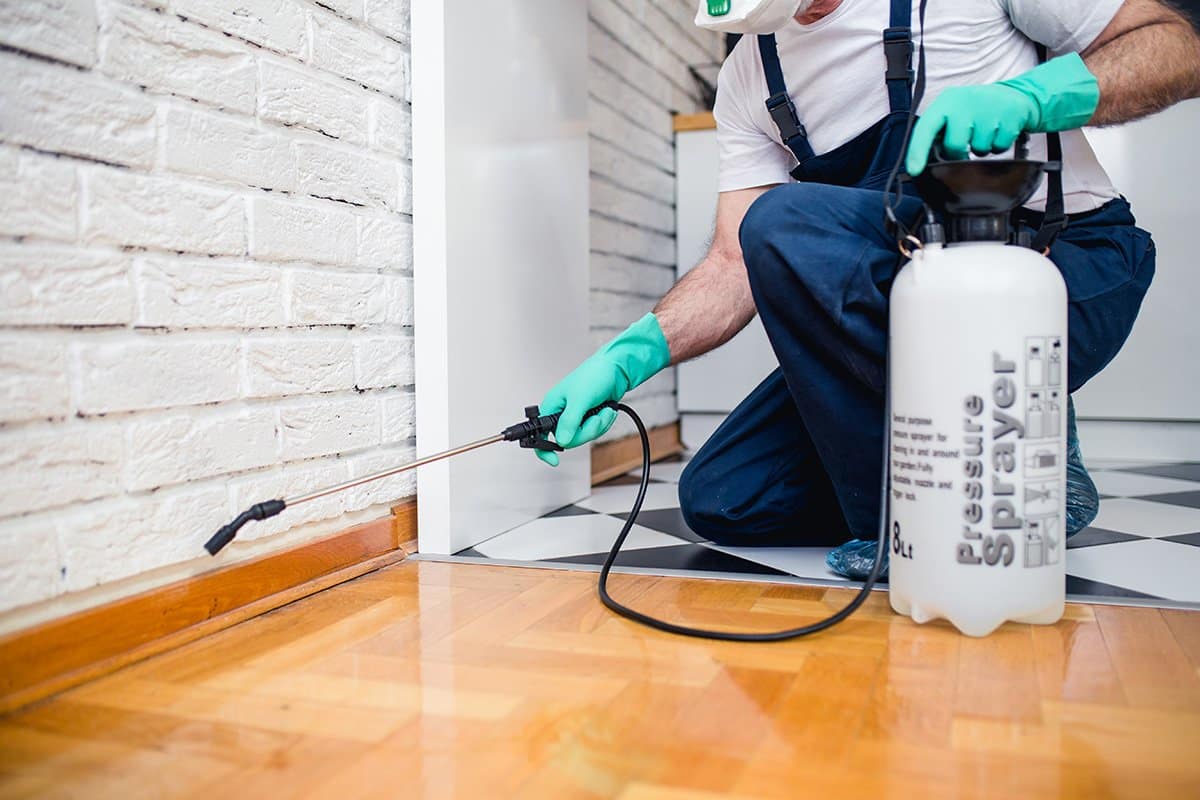Reliable Ant Control: Specialist Services to Remove Ant Infestations
Reliable Ant Control: Specialist Services to Remove Ant Infestations
Blog Article
Environmental Impact of Insect Control: Balancing Performance With Sustainability
The ecological influence of parasite control is an essential issue that calls for a delicate equilibrium in between accomplishing efficiency in managing insects and making sure sustainability of our ecological communities. As we aim to safeguard our crops, homes, and health from the risks positioned by insects, the methods we use can inadvertently harm the setting. From making use of unsafe chemicals that permeate into our dirt and water to the unexpected effects on non-target varieties, the effects of conventional pest control practices are significant. However, there are arising strategies that use wish for a more lasting strategy to pest monitoring. These options not just purpose to deal with the prompt parasite issues yet also take into consideration the long-lasting wellness of our world.
Hazardous Chemicals in Insect Control
The usage of unsafe chemicals in pest control postures significant ecological and health dangers that require careful consideration and reduction methods. Chemicals, herbicides, and insecticides are typically used to remove insects, but their widespread application can result in unplanned consequences. These chemicals can pollute dirt, water resources, and the air, affecting not only the targeted parasites however also helpful insects, wildlife, and human beings.

To resolve these risks, incorporated parasite monitoring (IPM) methods are being promoted as a much more sustainable alternative. IPM includes a mix of methods such as organic control, habitat control, and the targeted use of chemicals as a last resource (ant control forest nc). By embracing an alternative approach to pest control, we can reduce the environmental and health and wellness effects connected with dangerous chemicals while successfully taking care of pest populations
Influence on Non-Target Variety
Thinking about the unexpected consequences of bug control approaches, the effect on non-target species is a crucial facet that calls for extensive evaluation. While pest control measures aim to target specific parasites, various other organisms in the ecosystem might be inadvertently affected. Non-target varieties, including useful pests, birds, creatures, and also plants, can suffer straight or indirect harm from pesticide applications or organic control approaches.
Pesticides can have sub-lethal or lethal effects on non-target species. For instance, pesticides developed to deal with a particular insect bug may damage pollinators like or all-natural killers such as ladybugs. In addition, chemical residues can collect in the setting, impacting non-target organisms over time. Biological control agents, if not species-specific, can posture dangers to unintentional targets, interrupting the environmental equilibrium.
To mitigate the influence on non-target types, incorporated parasite administration (IPM) methods that stress a holistic approach to pest control are recommended. These methods focus on using eco-friendly techniques, minimizing damage to useful organisms while properly handling pest populaces. Carrying out extensive danger assessments and checking the outcomes of insect control efforts are crucial steps in securing non-target types and promoting total environment health and wellness.
Soil and Water Contamination
Unexpected environmental effects of insect control methods expand past affecting non-target varieties, with substantial implications for soil and water contamination. Pesticides, herbicides, and chemical fertilizers utilized in insect control can seep into the dirt and pollute groundwater, presenting a threat to both terrestrial and water communities. Dirt contamination can disrupt the balance of microorganisms crucial for nutrition cycling and plant growth, causing lowered dirt fertility and performance. In addition, these chemicals can continue the environment for extensive durations, collecting in the dirt and potentially entering the food web.
Water contamination is another crucial issue connected with pest control practices. Overflow from agricultural fields treated with chemicals can bring these chemicals into neighboring water bodies, influencing water organisms and water quality. Contaminants in water resources can have significant repercussions, affecting not just aquatic life but additionally human wellness through the intake of contaminated water or aquatic microorganisms. To reduce soil and water contamination from bug control tasks, incorporated parasite monitoring strategies that focus on sustainability and lessen chemical inputs are essential.
Air Pollution From Chemical Use
Direct exposure to air-borne pesticides throughout agricultural applications positions a significant issue for air pollution control procedures. Furthermore, pesticide drift, where pesticides are lugged by the wind to unintentional locations, can lead to the contamination of nearby ecological communities and water bodies.

Approaches for Lasting Insect Control
In the world of farming techniques, implementing sustainable bug control approaches is critical for preserving eco-friendly equilibrium and guarding plant yields. Sustainable insect control highlights the usage of eco-friendly approaches to take care of insect populations successfully while decreasing injury to non-target microorganisms and ecological communities. Integrated Pest Management (IPM) is a widely embraced strategy that combines organic, social, physical, and chemical control techniques to accomplish long-term pest management solutions.
One key approach in lasting bug control is promoting biodiversity within agroecosystems. By improving all-natural opponents of pests, such as parasitoids and killers, farmers can minimize the requirement for synthetic pesticides. Crop rotation and diversity are likewise efficient techniques to interfere with pest life process and produce less positive conditions for pests to grow. Furthermore, utilizing pest-resistant crop varieties and using methods like trap chopping can help in reducing pest pressure without depending heavily on chemical treatments. Eventually, by incorporating these lasting pest control strategies, farmers can accomplish a balance in between pest management efficiency and environmental stewardship.
Conclusion
To conclude, the ecological impact of pest control approaches need to be thoroughly taken into consideration to stabilize effectiveness with sustainability. Unsafe chemicals utilized in parasite control can lead to dirt and water contamination, air pollution, and harm non-target types - ant control. It is vital to execute lasting bug control strategies check out this site to minimize these unfavorable effects on the setting and promote a healthier environment for future generations
By taking on a holistic technique to pest control, we can lessen the ecological and health and wellness impacts connected with harmful chemicals while effectively handling pest populations.
To mitigate the air pollution caused by chemical use, it is essential to adopt integrated bug administration strategies that focus on the usage of non-chemical parasite control approaches, such as plant turning, all-natural killers, and resistant crop varieties. Lasting insect control emphasizes the usage of ecologically friendly approaches to take care of pest populaces successfully while decreasing injury to non-target microorganisms and communities. Integrated Bug Monitoring (IPM) is a commonly embraced approach that incorporates biological, social, physical, and chemical control approaches to achieve long-lasting bug administration options.
Report this page